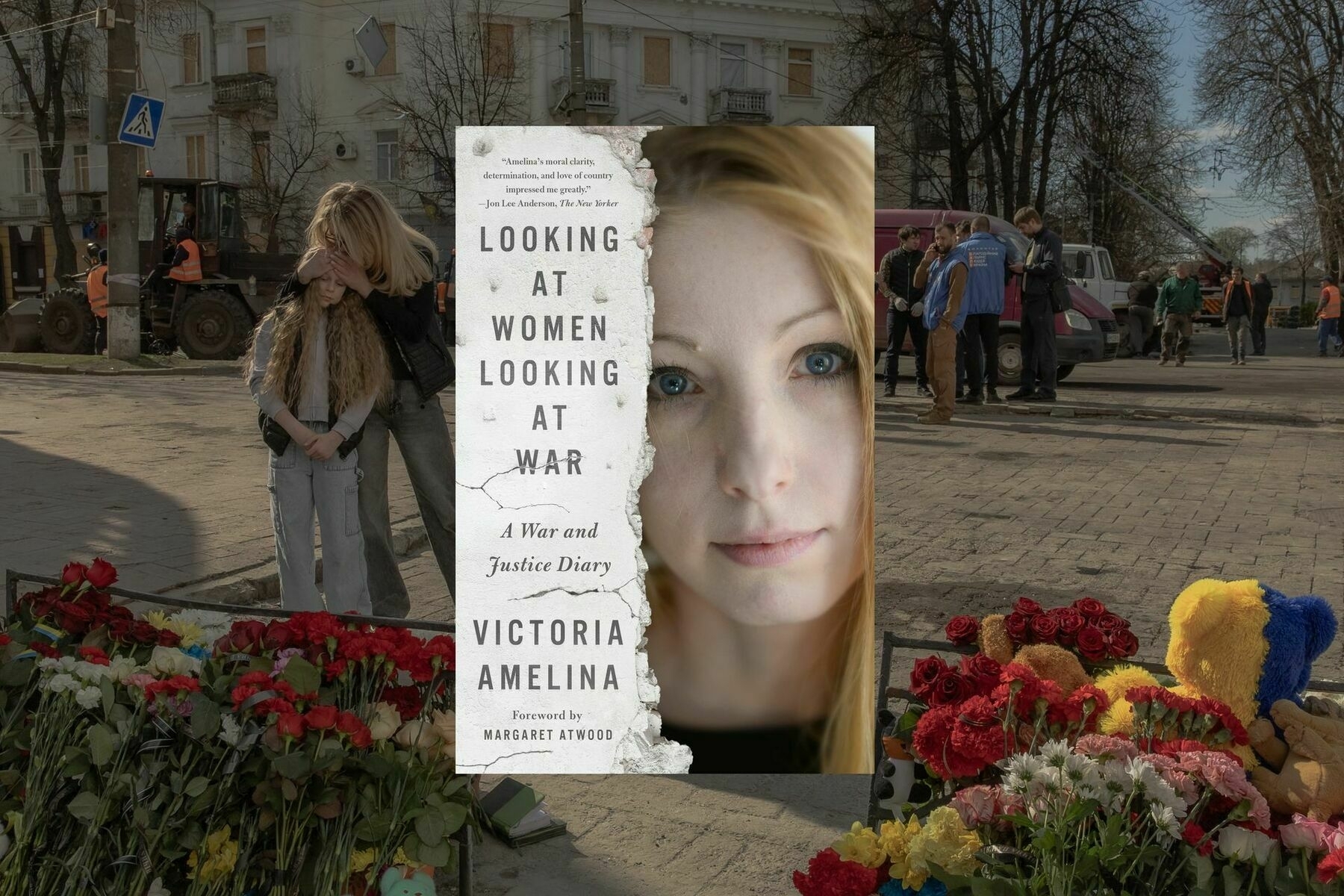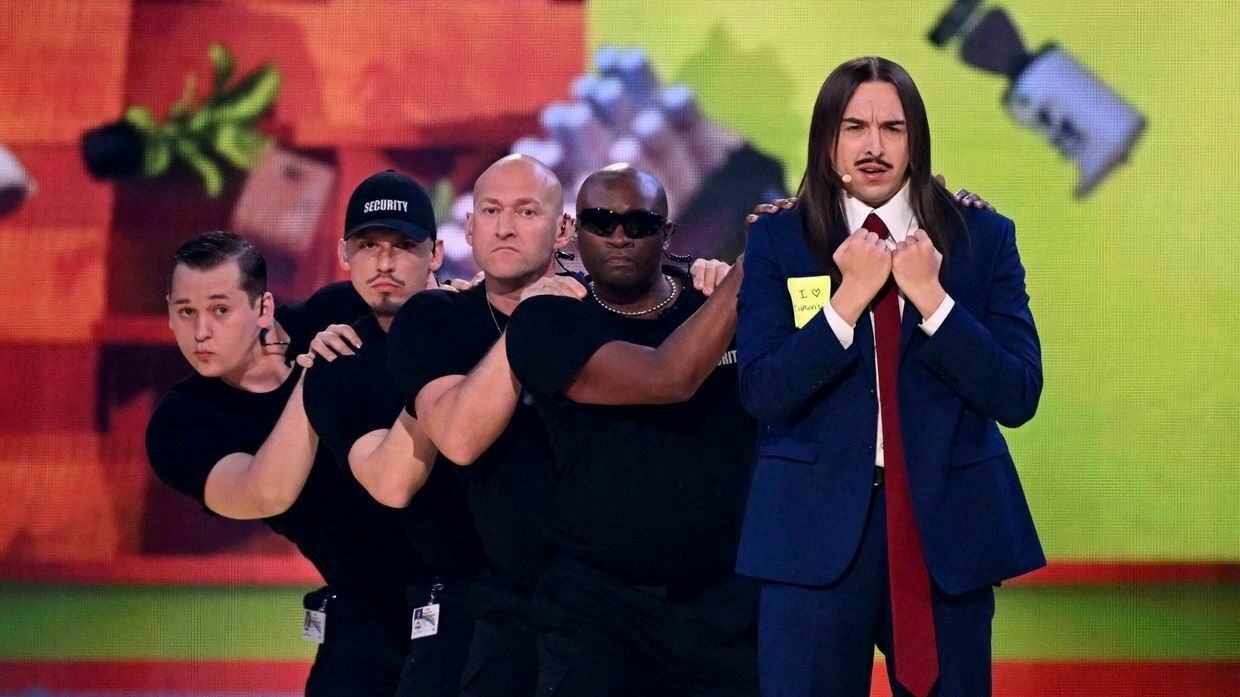
This year’s Eurovision Song Contest is taking place in neutral Switzerland, but politics are center stage. While debate continues over Israel’s participation amid the war in Gaza, Russia — banned from the contest since its full-scale invasion of Ukraine — continues to cast a shadow over the event.
This year, entries from Estonia, Austria, Ireland, Armenia, and Georgia have come under scrutiny for their perceived ties to Russia or cultural influences linked to it.
The grand final of Eurovision 2025 will take place on May 17 in Basel, Switzerland, starting at 10 p.m. Kyiv time (2 p.m. EST). Ukraine’s representative, the band Ziferblat, has qualified for the final with their song “Bird of Pray.”
The Kyiv Independent takes a closer look at some of the most notable cases of Russia’s influence among this year’s contestants.
Estonia
Provocative Estonian representative Tommy Cash has stirred controversy over the Russian influences in his background and work.
Currently, Cash describes himself as being of mixed Russian, Estonian, Ukrainian, and Kazakh descent. However, in older footage, he simply stated that his parents were Russian.
He grew up in a predominantly Russian-speaking neighborhood in Tallinn, Estonia’s capital, and Russian culture has played a major role in shaping his identity. Russian is his second language after Estonian, and post-Soviet aesthetics are a recurring theme in his art.
What has raised eyebrows among some Ukrainians is that his Eurovision music video for “Espresso Macchiato” involves both Russian and Ukrainian collaborators. The video’s director, Alina Pyazok, is a Russian native now based in Los Angeles who has publicly condemned the war. She initially posted an Instagram story listing the nationalities of the creative team, marked with Russian and Ukrainian flags — but later deleted it, apparently in response to backlash.
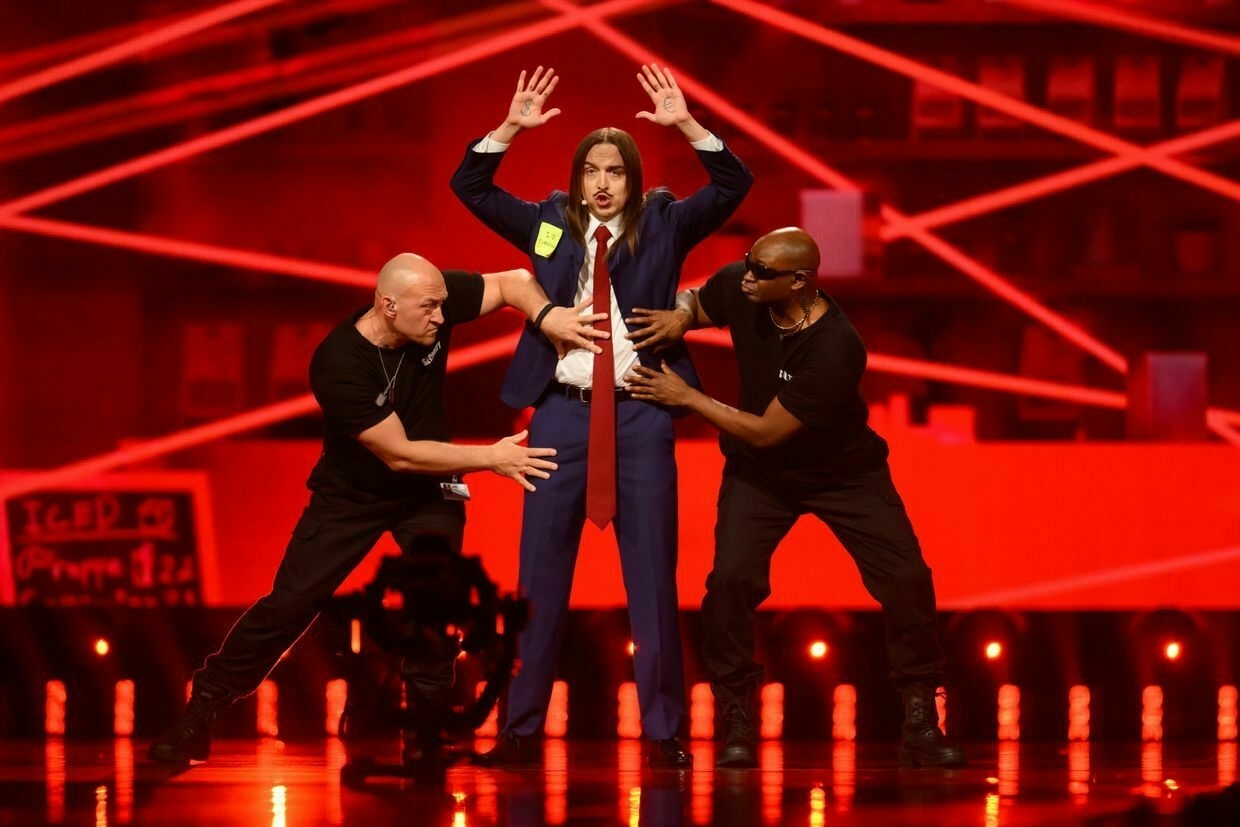
Cash has previously collaborated with the Russian band Little Big — known for their satirical style and for fleeing Russia after the full-scale invasion — releasing two joint music videos with them in 2015.
Rumors have also been circulating that Tommy Cash visited Russian-occupied Crimea in 2021. However, this claim remains unconfirmed. The artist’s representative denied the rumor, saying: “It is obvious that Tommy did nothing of the sort. With everything happening in the world right now, Russia is no longer of interest to Tommy.”
After the full-scale invasion began, Cash canceled his scheduled concerts in Kyiv, Moscow, and St. Petersburg. He has confirmed in both his music and interviews that he hopes to one day perform again in both Russia and Ukraine.
His public response to the war has been seen by some as vague. While he stated he condemns the war, he avoided naming Russia as the aggressor.
In a Facebook post in February 2022, he wrote: “It’s very hard to accept the current military actions, it’s all very sad! I am a strong opponent of any military aggression. I fully support the Ukrainian people and the people of Russia who do not support the invasion — it’s not their choice,” he wrote on Facebook. “This is an extremely sad situation, and I really hope that soon I will be able to return to these beautiful countries to perform my new music there.”
Austria
Austrian contestant JJ, currently ranked second by bookmakers, has sparked controversy by revealing in an interview with APA that he drew inspiration for his Eurovision song “Wasted Love” from Russian opera singer Anna Netrebko, among others.
Netrebko, who has longstanding ties to the Kremlin, has faced criticism for supporting Russian President Vladimir Putin and Russia’s war in Ukraine since 2014.
Though she publicly condemned Russia’s full-scale invasion in 2022 — a move widely seen as necessary to preserve her international opera career — she stopped short of directly condemning Putin.
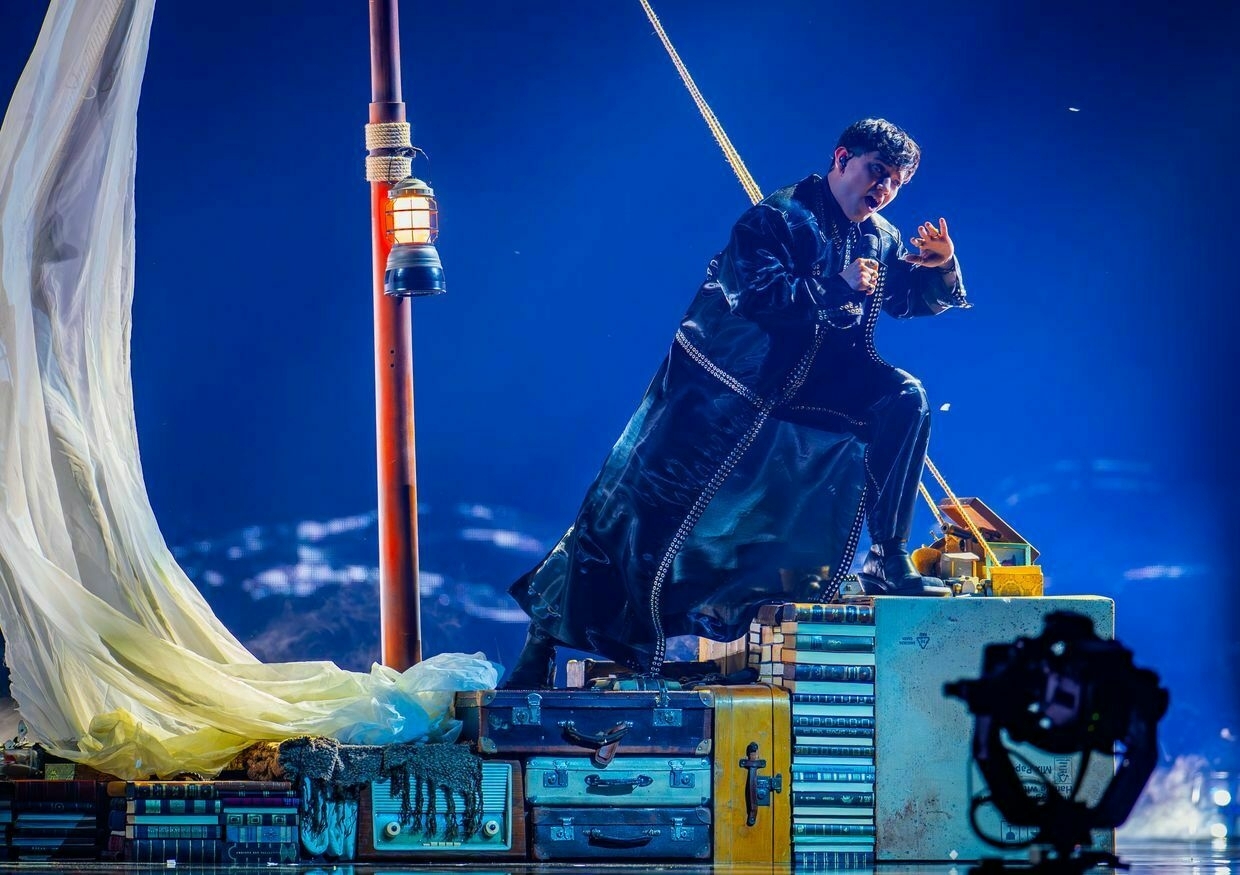
Many Ukrainians still recall that in 2014, Netrebko was photographed at an event in St. Petersburg alongside pro-Russian Ukrainian politician Oleh Tsariov and the flag of Russian-occupied Donetsk. At the event, she donated one million rubles to an opera house in Donetsk, claiming it had “nothing to do with politics."
In 2012, Netrebko also supported Putin’s reelection, with her name officially listed among the campaign’s endorsers.
Since the onset of Russia’s full-scale war, many of Netrebko’s concerts were canceled across Europe over her controversial political stance. However, some European opera houses have recently begun welcoming her back.
Netrebko now resides in Austria and performs at the Vienna State Opera, where JJ also performs.
JJ, who had followed Netrebko on Instagram and liked her posts until recently, no longer appears to be following her. Furthermore, Netrebko’s page seems to have been deactivated.
The Austrian contestant has remained silent on the controversy and his stance on the Russian war in Ukraine.
Armenia
Armenia’s Eurovision contestant Parg has drawn criticism for maintaining close cultural ties with Russia following its full-scale invasion of Ukraine.
In June 2022, during the early months of the war, he performed in Volgograd and was shortlisted for the Ural Music Night festival in Yekaterinburg.
Between 2022 and 2024, he recorded and posted a few covers of songs by Russian artists active in the country. In July 2024, he also performed at the opening of a water park in Sochi.
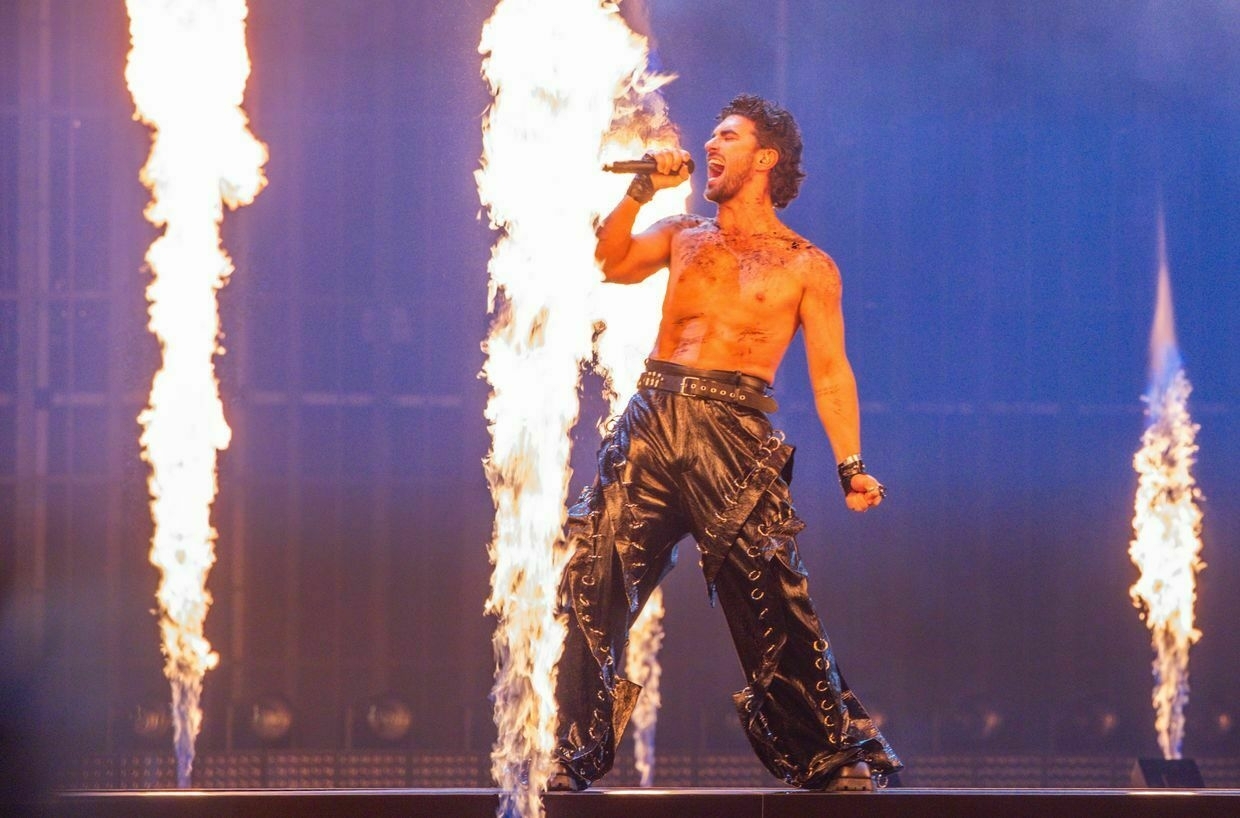
Born in Armenia, Parg moved to Russia with his parents as a child and lived there for most of his life. Although he returned to Armenia in 2022, he has continued to travel to Russia and perform there.
Parg hasn’t publicly commented on his performances in Russia during the full-scale war.
Ireland
Ireland will be represented at this year's Eurovision by Norwegian singer Emmy performing “Laika Party” — a song about the Soviet space dog who became the first living being launched into Earth orbit in 1957.
Laika, a stray from the streets of Moscow, was sent into space by the Soviet Union at a time when no technology existed to bring her back. Its survival was never expected. Initial Soviet reports falsely claimed Laika lived for several days, using its story to glorify the mission.
It was later revealed that the dog died within hours due to overheating and stress. Some believe its death could have been avoided if the mission hadn’t been rushed to showcase Cold War-era technological dominance.
Laika’s story is both a scientific milestone and a moral controversy that continues to raise ethical questions about animal testing. Meanwhile, “Laika Party” is a cheerful electro-dance song that frames Laika’s journey as a heroic sacrifice.
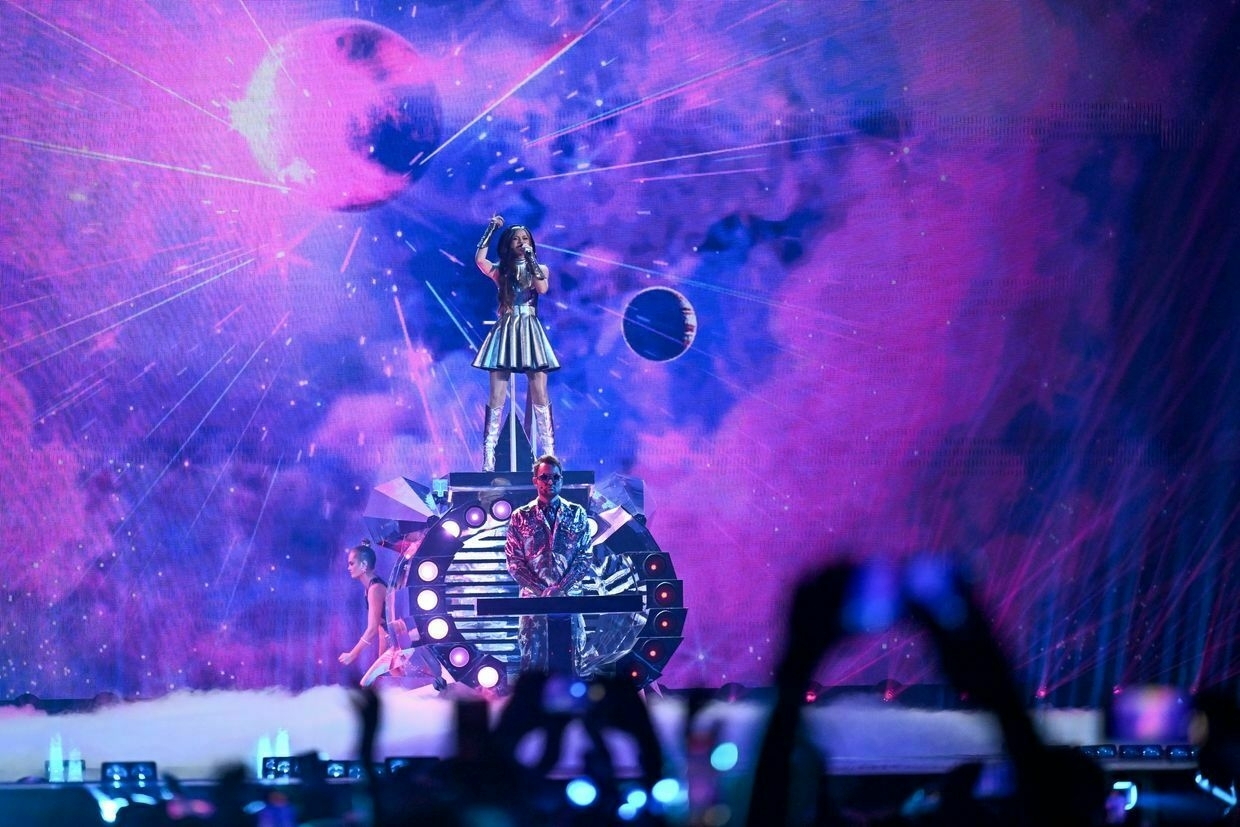
The song was co-written by a Russian singer and songwriter, Larissa Tormey, who relocated to Ireland 25 years ago after getting married to an Irish man.
She met Emmy at a songwriting camp in Norway, where Emmy reportedly told her she had recently learned about Laika’s tragic fate at a family quiz and felt compelled to write a song “with a more cheerful ending, where the dog is dancing around the stars.”
“This topic was very close to me, because it’s part of Soviet history,” Tormey told the Russian propaganda outlet Komsomolskaya Pravda. “We wrote the song in two hours.”
It was Tormey who encouraged Emmy to submit the track to Ireland’s national selection. As the only Irish citizen among the songwriters, she made the entry eligible under contest rules.
Tormey has publicly opposed the war in Ukraine and took part in a fundraising concert for the Irish Red Cross to support Ukrainian aid efforts. At the same time, she has expressed sympathy for people in Russia, saying, “Ordinary Russian people have nothing to do with what is happening, and they are going to be victims of this as well.”
Georgia
The participation of Georgian representative Mariam Shengelia has sparked backlash both internationally and among many Georgians, with some even calling for her disqualification.
Shengelia openly supports Georgian Dream, the pro-Russian ruling party accused of seizing power through fraudulent elections. Thousands of Georgians continue nationwide protests as the party intensifies its crackdown on dissent.
Georgian Dream has increasingly distanced the country from the West by passing a controversial “foreign agents” law and adopting Kremlin-style policies. The party pushes to abandon European integration in favor of closer ties with Russia.
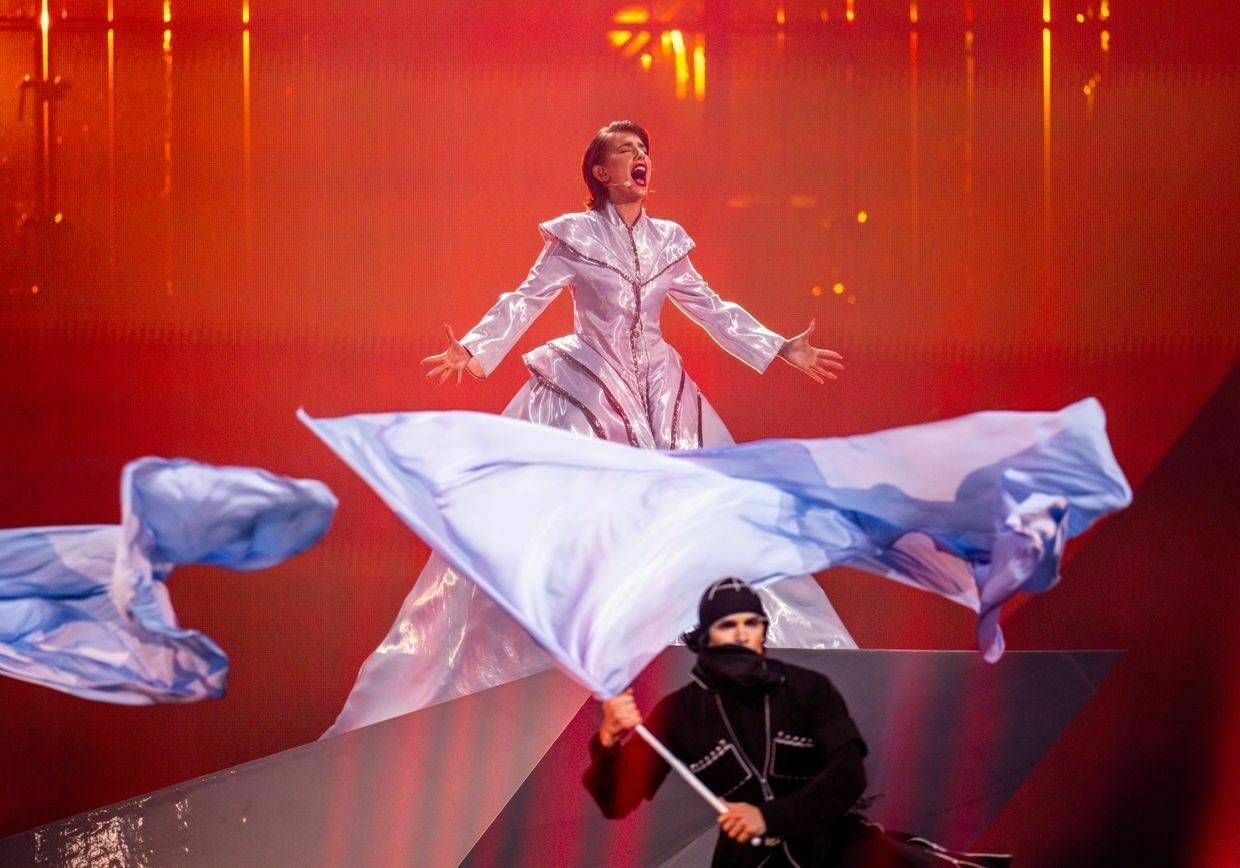
Interestingly, Shengelia supported Ukraine in early 2022 following Russia’s full-scale invasion, but by 2024, her attitude shifted as she performed at a pro-Georgian Dream concert and campaigned for the party ahead of the elections, urging voters to keep the country "in peace."
Though her Eurovision song “Freedom” sounds like a patriotic ode to Georgia, Shengelia describes it as a message of peace. Peace was also a central theme in Georgian Dream’s campaign, which branded itself as a party that "says yes to peace, no to war," while clearly endorsing a pro-Russian stance.
In response to social media claims labeling her pro-Russian, Shengelia dismissed the criticism as “absurd” and the result of “disinformation.”
 The Kyiv IndependentKate Tsurkan
The Kyiv IndependentKate Tsurkan